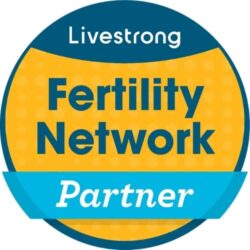Cancer & Fertility Preservation
Fertility preservation and oncofertility at a glance
- Cancer and cancer treatment can diminish fertility in men, women and children.
- The risk of infertility depends on the cancer type and treatment plan, but is higher when treatment target the pelvic and surrounding areas.
- Oncofertility, a specialized field of medicine to save an individual’s embryos, eggs, sperm and reproductive tissues prior to undergoing cancer treatment, helps patients preserve fertility options for later in life.
- Multiple cryopreservation options are available for couples and individuals wanting to preserve their fertility, including freezing eggs, sperm, embryos, and reproductive tissue.
How cancer treatment can affect fertility
Chemotherapy and radiation treatments are two of the most common methods used to treat cancer. They work by destroying rapidly dividing cells, such as those found in tumors. These cancer treatment regimens attack rapidly dividing cells in the body, including healthy cells like sperm and eggs. Depending on the dose and duration – and the type of cancer – these therapies can have varying effects on reproductive health.
Surgery involving reproductive tissue also affects reproductive function and fertility.
Female infertility
For women, one marker of decreased fertility potential after cancer treatment is the loss of menstrual cycles, or premature menopause. Some women who still have menstrual cycles after cancer treatments may still have diminished ovarian reserve, meaning the remaining supply of eggs in the ovaries was damaged by treatment although there is some ovarian function remaining.
Male infertility
For men, either the cancer itself or the cancer treatments can cause infertility. Specific cancers that can damage the testes include testicular cancer and Hodgkin’s Lymphoma, resulting in reduced sperm counts.
During & after treatment
Six to 12 months after cancer treatment, the sperm that were exposed to chemotherapy or radiation will likely have all been ejaculated. Eggs that are healthy enough to be ovulated are also more likely to be undamaged. In fact, both the eggs and the stem cells that produce sperm have some ability to repair genetic damage during the first several years after cancer treatment.
If a woman is pregnant and her male partner is undergoing chemotherapy, using a condom is advised to keep the medicine from reaching the fetus through intercourse. During the first few days after having radioactive seed implants for prostate cancer, men may ejaculate a radioactive seed in their semen. The doctor can advise when it is safe to resume intercourse and whether to use a condom.
If a woman is pregnant at the time of cancer diagnosis, she may be able to continue the pregnancy and have a healthy baby even if she needs chemotherapy, particularly if the pregnancy is past the first three months when most organs are formed. This situation occurs occasionally in young women with breast cancer.
Oncofertility and fertility preservation options
Although a cancer diagnosis can feel overwhelming, it is a good idea to consider fertility preservation before starting cancer treatment. Understanding that there are options can improve patients’ emotional outlook and quality of life.
Oncofertility is the field of medicine which specializes in fertility preservation options for those diagnosed with cancer. The options include:
- Embryo banking: Eggs are removed from the ovaries and fertilized, then the embryos are cryopreserved (frozen).
- Egg freezing: Eggs are removed from the ovaries (but not fertilized) then frozen.
- Ovarian tissue freezing: an ovary or part of an ovary is surgically removed from the woman. The tissue is frozen and later, after she is cancer free, it is transplanted back into her pelvis.
- Sperm freezing: A man provides a semen sample and the sperm are frozen.
- Radiation shielding: The ovaries or testicles are shielded from radiation.
ReUnite Assist Program
This medication assistance program provides eligible cancer patients a discount on fertility drugs at participating pharmacies. The following medications are eligible for a discount:
- Follistim AQ Cartridge (follitropin beta injection).
- Ganirelix Acetate Injection.
- Pregnyl (chorionic gonadotropin for injection, USP).
Visit ReUnite Assist Discount Program
Discounted fertility preservation services for cancer survivors
 Tennessee Reproductive Medicine is proud to be a LIVESTRONG Fertility program partner, offering discounted services to qualified cancer patients. LIVESTRONG Fertility provides reproductive information, support and financial assistance to cancer patients who seek to preserve fertility (through embryo, egg or sperm freezing) and plan for a family after undergoing cancer treatments that present a risk to fertility. Anyone affected by cancer can apply prior to the start of cancer treatment to receive discounted services at any of the Foundation’s partnered centers, such as TRM.
Tennessee Reproductive Medicine is proud to be a LIVESTRONG Fertility program partner, offering discounted services to qualified cancer patients. LIVESTRONG Fertility provides reproductive information, support and financial assistance to cancer patients who seek to preserve fertility (through embryo, egg or sperm freezing) and plan for a family after undergoing cancer treatments that present a risk to fertility. Anyone affected by cancer can apply prior to the start of cancer treatment to receive discounted services at any of the Foundation’s partnered centers, such as TRM.
Pregnancy options after cancer treatment
If a man or woman becomes infertile due to cancer treatment and did not preserve their sperm, eggs, or embryos, there are still ways to have a child, including:
- Donor embryos: A woman may choose to have a donated embryo implanted in her uterus.
- Donor eggs: A couple can use donor eggs that have been fertilized with the male partner’s sperm to conceive.
- Surrogacy: An arrangement in which a woman carries and delivers a child for another couple or person. The surrogate mother may be the child’s genetic mother (called traditional surrogacy), or she may be genetically unrelated to the child (gestational surrogacy) in which the intended mother’s own eggs, embryos or donor eggs are used, fertilized with the man’s sperm or donor sperm.
- Adoption.
Still have questions? Find more information at ReproductiveFacts.org, a site by the American Society for Reproductive Medicine.



